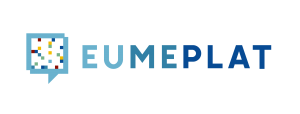Are media platforms making or breaking European identity?
While media platforms can play a role in enhancing a European identity, the European dimension has rarely dominated in media history. Most web platforms are owned by American companies, and market shares are divided among national productions and importations from the United States and other influential countries. The EU-funded EUMEPLAT project will conduct a multidisciplinary analysis to shed light on whether new platforms (YouTube, Netflix and NewsFeed) are making European culture more European. To answer this question, the project will study indicators related to production, consumption and representation. It will also look for patterns on a national, regional and European level.
Our approach:
- to furnish detailed knowledge about the evolution of European media landscape;
- to come up with an operational definition of “Europeanisation”, and provide policy-makers with guidelines for addressing it as a strategic priority;
- to identify best-practices in cross-European cultural circulation;
- to analyze the representation of sensitive issues (gender and immigration) in ten countries;
- to suggest counter-measures for tackling negative externalities of platformization, with an emphasis on anti-European fake news;
- by drawing on all tendencies detected, to come out with an indication of the problems to be prioritized in the future agenda.
Expected impact:
In line with the H2020 Call Evolving media landscapes and Europeanisation the expected impacts of the EUMEPLAT project are:
- filling the knowledge gap about European media landscape in the global scenario
- realizing diachronic and synchronic analysis of media landscape
- offering reliable forecast about the evolution of European media landscape
- developing a rigorous analysis of how European political and cultural space are evolving and of their prospects
- improving statistical data and methods of researching concerning contemporary media
- equipping policymakers with knowledge and effective tools for understanding the impact of the changing media landscape on European politics and on political and cultural Europeanisation
- favouring cross-cultural debate
- preparing the ground for new economic activities
- promoting awareness, in the broader sense, of relevant critical issues related to media landscape and of the role played by the media in shaping European identity
Project description in:
BULGARIAN – DUTCH – FRENCH – GERMAN – GREEK – ITALIAN – PORTUGUESE –SPANISH – SWEDISH – TURKISH
